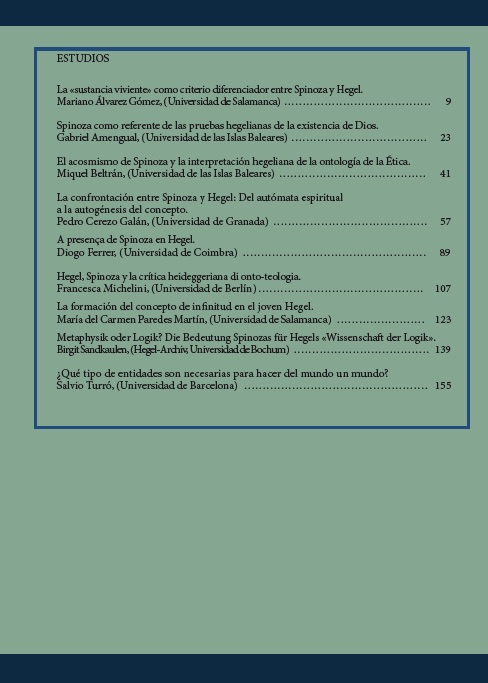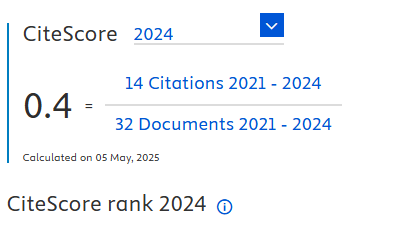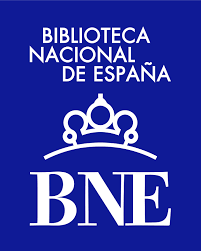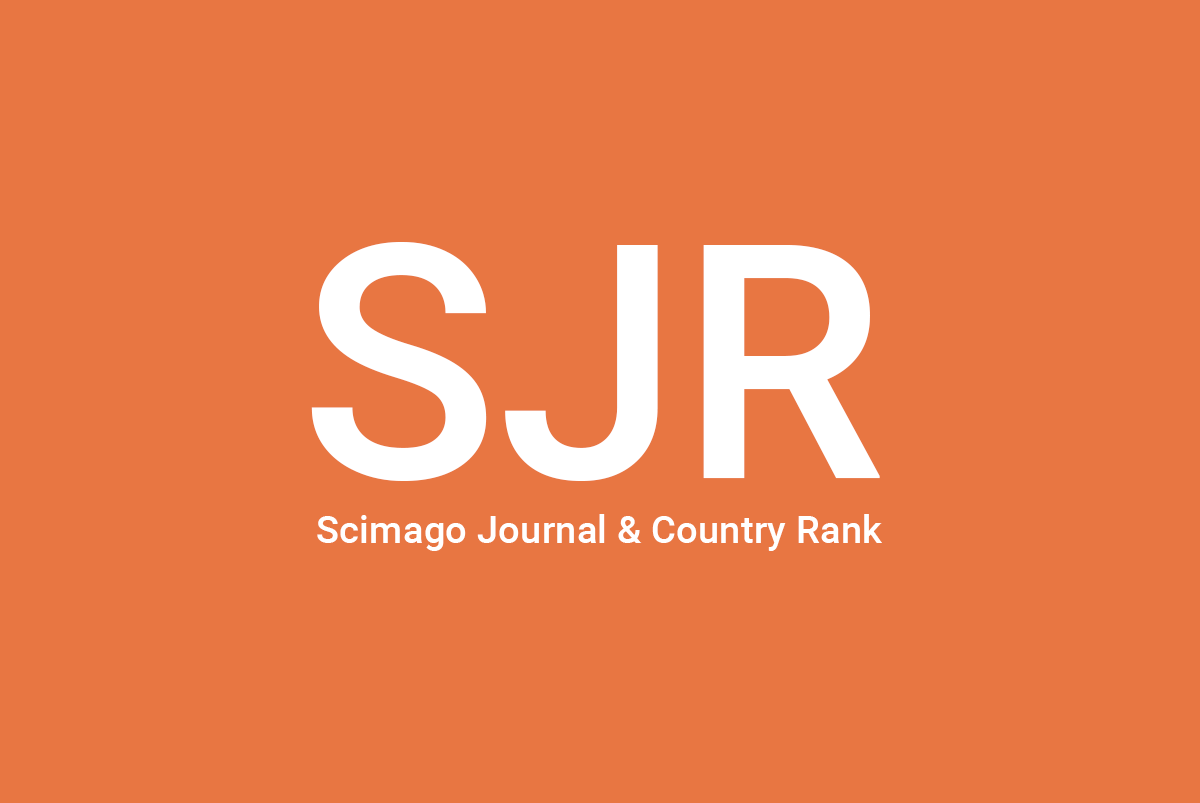«Qué tipo de entidades son necesarias para hacer del mundo un mundo» [A propósito de Enciclopedia § 50] «What kind of beings are needed to make the world a world» [About Encyclopedia § 50]
DOI:
https://doi.org/10.24310/stheg.v0i1.3701Keywords:
Worldly Wisdom, Conception of the World, Worldliness, acosmism, Spinoza, HegelAbstract
Hegel notoriously viewed Spinoza’s thought as a form of «acosmism», a topic which is here introduced by way of summoning the link between philosophy and world. Appropriately embedded in a succession of immediate contexts (Wolff, Platner, Maimon), the conceptual history of this notion leads to seeing the controversy surrounding it as a clash between opposite ways of understanding the «order of the world». Thereafter the Hegelian conception of the world is reconstructed along the claim that the absolute spirit overcomes the aporiae contrived by the objective spirit. This circumstance leads to perceive in the collision between Hegelian worldliness and Spinozist acosmicity the pitting of a «qualitative» temporality (of Christian-theological bent) against the merely extensive temporality implied by the homogeneous and isotropic universe of the new science. This outcome, in its turn, suggests ranging both models in the setting deployed by the antique «worldly wisdom» and the commitment to philosophy as «consolatio».
Downloads
Metrics
Publication Facts
Reviewer profiles N/A
Author statements
Indexed in
-
—
- Academic society
- N/A
- Publisher
- Universidad de Málaga
Downloads
Published
How to Cite
Issue
Section
License
This journal provides immediate free access to its content under the principle of making research freely available to the public. All contents published in Studia Hegeliana. Journal of the Spanish Society for Hegelian Studies, are subject to the Creative Commons Attribution-NonCommercial-ShareAlike 4.0 licence (specifically, CC-by-nc-sa), the full text of which can be found at <http://creativecommons.org/licenses/by-nc-sa/4.0>. Derivative works are therefore permitted as long as they are not used for commercial purposes. The original work may not be used for commercial purposes. The journal is not responsible for the opinions expressed by the authors of the works published in it.
It is the authors' responsibility to obtain the necessary permissions for images that are subject to copyright.
Authors whose contributions are accepted for publication in this journal retain the copyright. It is non-exclusive right to use their contributions for scholarly, research and educational purposes, including self-archiving or deposit in open access repositories of any kind.
Since volume 7 of 2021 the journal Studia Hegeliana has changed the copyright. Since that year the authors have retained the copyright.
The electronic edition of this journal is published by the Editorial de la Universidad de Málaga (UmaEditorial), being necessary to cite the source in any partial or total reproduction.







244.png)






















